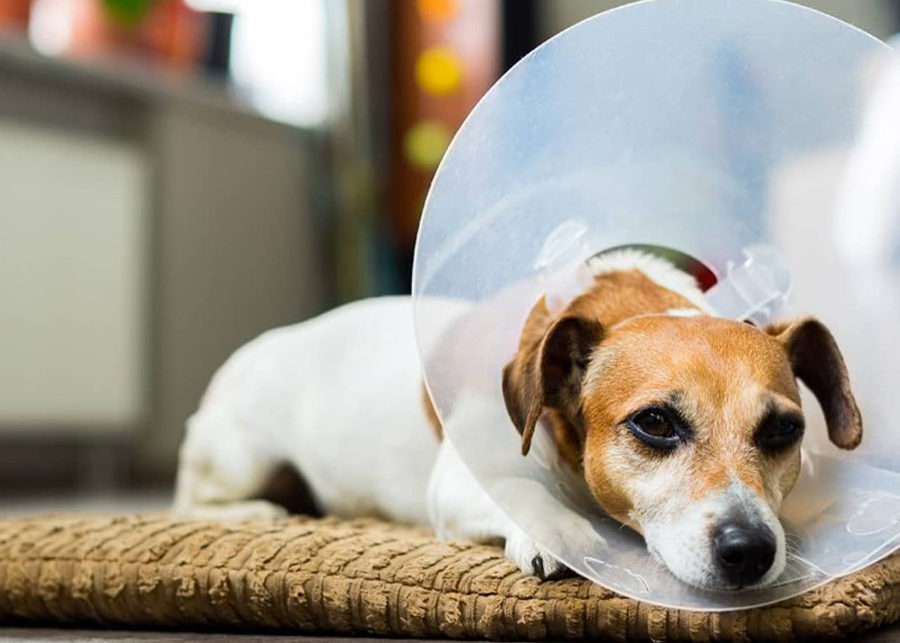The benefits of spaying are so numerous that it is crucial that you spay or neuter your pet. Preventing the birth of unwanted pets also helps to prevent a huge number of animal problems. The benefits for male and female pets are very similar.
Spaying or neutering your pet can prevent many diseases and increase the longevity of your pet. Male and female pets both benefit from this procedure. Spaying can also reduce your pet’s risk of contracting cancers, such as testicular cancer or certain prostate problems. It also lowers the risk of your pet getting hit by a car or becoming involved in an altercation with another pet.

Benefits of Neutering a Cat
Spaying or neutering your cat will improve its health and life span. It will prevent a number of ailments, including uterine infections and reproductive organ cancers. It will also decrease unwanted behaviors such as mating and howling. Furthermore, spayed and neutered cats are less likely to roam the house, fight, or become stray.
Spayed and neutered cats are less likely to be injured by vehicles, which is great for your safety and the safety of your neighbors. It’s also less likely to roam, which is an important consideration if your cat is confined to a small apartment or home. Cats that are not neutered are more prone to escape and can be hit by a car or be injured by other cats.
Spaying a cat will save many lives. Female cats have up to three litters a year and may give birth to multiple kittens per litter. By the time a female cat is four years old, she can give birth to as many as 10,736 kittens. As a result, spaying or neutering your cat will help control the pet overpopulation crisis. And by reducing the number of unwanted pets, you’ll also be contributing to a better society.
Benefits of Spaying females
In addition to preventing infertility, spaying female pets can also prevent various types of cancer. In fact, cancer of the reproductive organs is one of the most common in dogs, and unspayed females are at a higher risk of contracting the disease. Spaying also prevents uterine infections, which can kill your pet if left untreated.
Spaying a female pet before it comes into heat can help her avoid some unwanted behavior, including roaming around the house in search of a mate. Spaying can also eliminate the possibility of false pregnancy, and it prevents uterine infection called pyometra. Spayed female pets also have a lower risk of developing breast cancer. Additionally, spayed females have less chance of contracting diabetes, and they live longer than their unspayed counterparts.
Spaying a female pet will help keep your home and neighborhood clean of stray males. It will also decrease the desire for the pet to reproduce and roam. Unwanted litters will cause more expenses for animal shelters and no one wants to deal with that. If you want to learn more about the benefits of spaying a female pet, ask your veterinarian about the appropriate timing. It will depend on your dog’s unique needs and history. In general, female pets can be spayed after 8 weeks of age, but it’s better to spay them before their first heat.
Benefits of Neutering males
Neutering male pets can have a number of benefits for both the animal and its owner. Neutered male pets are less likely to roam, which means fewer chances of them getting into fights or being involved in traffic accidents. It can also help them become calmer and more obedient. A neutered pet is also less likely to spray urine around the house or try to mount people.
One of the biggest benefits of neutering your male pets is the reduced risk of cancer. It’s well known that unaltered animals are more prone to developing breast, mammary gland, and testicular cancers. By neutering your male pet, you’ll decrease your pet’s risk of testicular cancer and benign prostatic hyperplasia, which can affect a male’s ability to defecate.
In addition to these health benefits, neutering a male pet can help prevent aggressive behavior. This behavior is more common in unaltered male dogs, but it can happen in either sex. Having a male neutered at a young age will prevent such unwanted behaviors.
Prevents Diseases
Spaying or neutering your pet will reduce your pet’s risk of certain diseases. Spayed females have a lower risk of mammary gland tumors, and spayed males have a lower risk of developing testicular cancer. Neutered males are also less likely to develop prostate infections or illnesses involving the prostate gland.
Spaying your pet can also extend your pet’s life. Females can live longer after spaying, and the procedure reduces the risk of breast and ovarian cancer in both sexes. In addition, spaying prevents problems associated with reproductive system infections and the heat cycle in males.
Spaying or neutering your pet can also prevent the spread of certain diseases, including rabies. Since spaying removes the reproductive tract and most or all of the uterus, your pet will be much less likely to contract these diseases from other animals or wildlife. In addition to reducing the chance of contracting these diseases, spaying will help reduce the number of stray animals.
Spaying or neutering your pet will also save you money in the long run. Spayed animals are healthier, and they are less likely to roam and fight with other animals. They are less likely to produce unwanted litters, and neutered males will not mark or scratch expensive carpets or shrubs.

Reduces Fights
Spaying or neutering pets reduces the chances of fights between them. It also makes them less likely to roam and become injured. Neutered animals are also less likely to fight and mark territory. In addition, spayed animals do not suffer from heat cycles, which can result in unwanted behavioural changes. For example, female cats in heat may spray inappropriately and howl excessively, which can attract unwanted male cats.
Spaying or neutering pets can also increase the life expectancy of your pet. Spayed females have a lower risk of mammary tumors and uterine cancer. Spayed or
neutered males are also less likely to become aggressive, and they will be less likely to fight other animals. Neutered pets will also become better watchdogs, which can help prevent unwanted fights.
Although spaying or neutering pets can reduce fights, it’s still important to separate pets that live together. Dog fight injuries can range from minor to life -threatening. Even if they are not life – threatening, it’s important to seek veterinary attention as soon as possible. A bite or laceration can easily become infected, and a puncture wound can damage deep tissues.
Reduces Risk of Roaming
Spaying or neutering your pet significantly reduces the risk of roaming. Spayed or neutered males are much less likely to wander, and neutered females can remain on your property without needing to be tied or muzzled. They also have fewer chances of contracting disease and developing breast tumors. Additionally, neutered pets are less likely to roam during the mating season. A male cat or dog with an altered uterus or ovaries can detect the presence of a female in heat from up to nine miles away.
Spaying or neutering your pets can also greatly improve their health and reduce the risk of accidents. Unaltered pets are more likely to roam and become involved in traffic accidents and fights with other roaming dogs. Unaltered pets are also more likely to spray urine on your property, exposing it to danger.
Spaying or neutering pets can significantly increase the lifespan of your animal. A study from the University of Georgia reviewed medical records on more than 70,000 animal patients and found that those who had been neutered or spayed had a life expectancy 13.8% longer than those without these procedures. Similarly, a spayed female lived an average of 9.4 years longer than an intact male.
Cleaner Home
Spaying or neutering your pets is a great way to prevent unwanted behaviors, such as fighting, and reduce the risk of certain diseases in cats and dogs. It is also an excellent way to save money on veterinary bills in the future. Moreover, it saves the lives of many animals, including puppies and kittens. In 1992, the International Society for Animal Rights founded International Homeless Animals Day, which is celebrated on the third Saturday of August each year. The purpose of this day is to raise awareness about the overpopulation of cats and dogs.
Spayed and neutered dogs tend to be less aggressive and assertive, which means you won’t have to deal with territorial marking. Spayed males are also less likely to leave urine marks on fences and shrubs, and they are less likely to roam inside your home. Spaying female pets also prevents unwanted pregnancy. Moreover, spaying your pet helps you to avoid problems such as constant yelping, urination, and blood spots.
Benefits of Spaying Or Neutering Pets Result
If you have a pet, you should consider spaying or neutering them. If you have the means and are passionate about helping your pet live longer and healthier, then there’s no reason why you shouldn’t. And if you’re on the fence about it, keep in mind that male and female pets both benefit from this procedure, so there’s nothing stopping you from doing it to any of your pets. Spaying or neutering your pet may not be the easiest thing to do, but it can help make the lives of both your pets and their future adoptive owners a lot easier.





